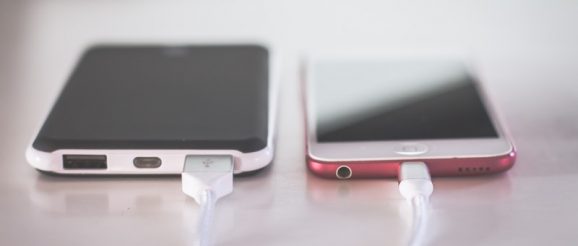Tech News to Know This Week: Oct. 25-31, 2022 – Innovation & Tech Today

Every day we wake up, drink a cup of coffee, and get ready for work. Following are a handful of stories from around the tech world condensed to fit into one single cup of coffee. These are the things you need to know before you step foot out of your door (or in front of a webcam) and into the real world this morning.
So sit back, grab a cup, and start your morning off right with a few “Quick Bytes” from Innovation & Tech Today.
Texas AG Sues Google Over Privacy Breaches
Google has added a new “suitor” to its long list of lawsuits. The state of Texas is bringing a new lawsuit against the tech giant, alleging it violated the state’s biometric privacy law by “indiscriminately” collecting voiceprints and facial recognition data from users and non-users of the company’s products without their consent.
Texas Attorney General Ken Paxton claims the company’s broad application of facial recognition technology in Google Photos, as well as its use of voice recognition technology in its line of smart speakers and other home products, is a violation of the state’s Capture or Use of Biometric Identifier Act.
According to the complaint, Google scanned photos and identified subjects without user consent and listened to conversations without opting into Google’s indiscriminate voice printing.
The complaint describes Google’s Nest Hub Max, a smart home display with a built-in camera, as “a modern Eye of Sauron—constantly watching and waiting to identify a face it knows.”
First Brit Gets Bank Card Chip Surgically Inserted into His Hand
Conspiracy theorist radars will be going off this week as a man became the first British citizen to have a bank card chip implanted in his hand.
Arnie Szoke, 40, paid £350 to have an operation in Germany that allows him to pay for goods by using only the back of his right hand.
The chip uses contactless card technology, with magnetic fields transferring data to readers.
It may be a convenient way to pay for the morning newspaper, but some Biblical textualists believe this growing trend could signify that the apocalypse prophecy is being fulfilled. A verse in Revelation in the New Testament refers to a world where people cannot buy or sell unless they have a “mark” on their right hand or forehead.
Not one for ancient prophecies, for Szoke, the chip implant is simply a way to ensure he doesn’t lose cash and can still get lunch if he forgets his wallet at home.
Nearly 5000 Swedes have already undergone the procedure, during which surgeons open a half-millimeter pocket in the side of the hand for the safety pin-sized chip and stitch it up within five minutes.
European Commission Votes to Standardize Phone Chargers
The rise of the USB-C is complete. Users can start phasing their micro-USB chargers in Europe after the European Council gave a final approval for a common charger directive Monday.
The move will make USB-C ports mandatory for mobile phones, tablets, headphones, games consoles, and other electronic devices by fall of 2024.
Device makers can still choose whether to bundle chargers with their products, but a mandate could soon come that would standardize that, too.
“Looking for the right charger, either at home or at work, can be quite annoying,” Czech Minister for Industry and Trade Jozef Síkela said in a statement.
However, the most pressing incentive of the recent vote is reducing the 11,000 tons of e-waste created from chargers every year.
“Having a charger that fits multiple devices will save money and time and also helps us reduce electronic waste,” Síkela noted.
Meta Threatens to Block Canadian News Content
Meta Plaforms Inc. is threatening to block Canadian news content. The Facebook owner is urging the Liberal government to amend legislation that would compel big digital companies to compensate domestic media outlets.
Meta representatives were not allowed to testify at the hearings leading up to the vote as lawmakers voted to stop hearing testimony from further witnesses. The legislation is still under review by a parliamentary committee, but it is unclear what influence, if any, Meta’s recent comments will have on the verdict.
Meta also blocked Australian content last year as it faced similar legislation.
The Future of Artificial Intelligence
Author Bio: Innovation & Tech Today features a wide variety of writers on tech, science, business, sustainability, and culture. Have an idea? Send it to [email protected]
Get the Latest News Sent to Your Inbox
(Plus Exclusive Tech Deals and Our Digital Magazine)
We will only use your info to send you awesome content and exclusive deals.
